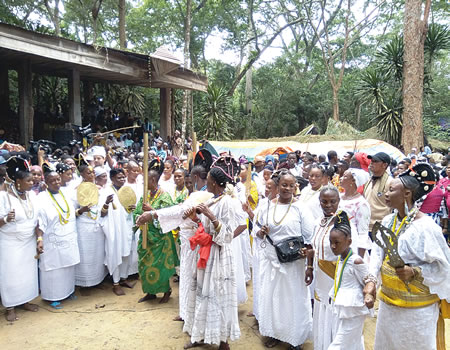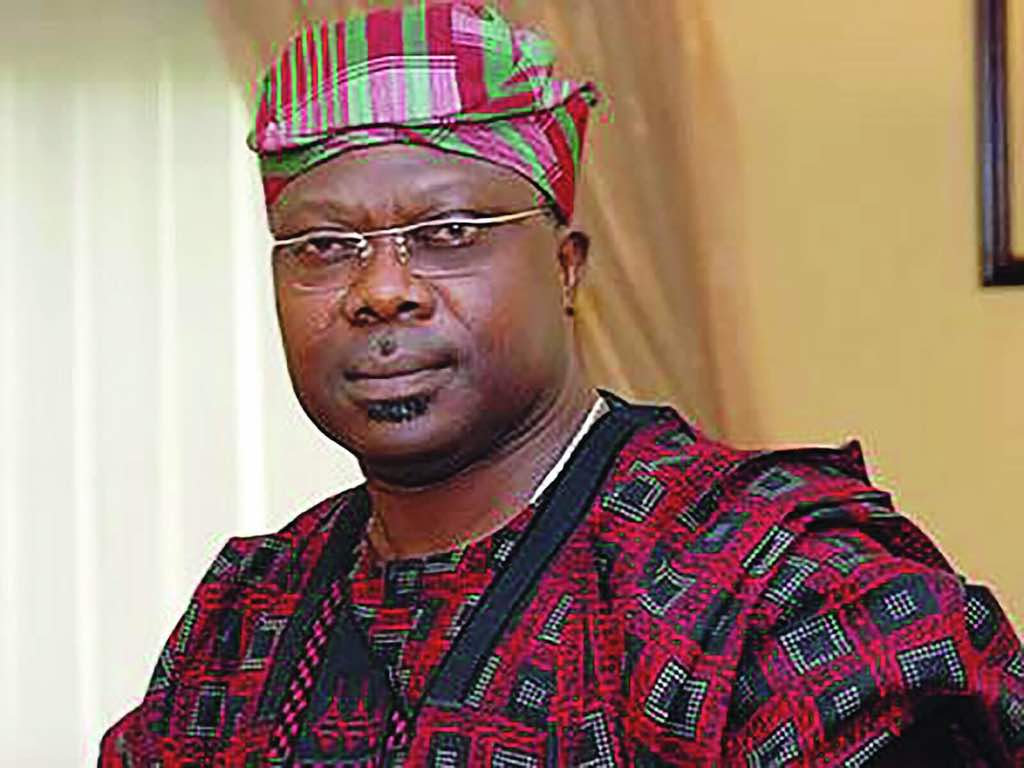[ad_1]
CULTURAL heritage performs irreplaceable role as a source of meaning and identity to communities and individuals. It is not a relic of the past but it is increasingly instrumental in steering sustainable development and wellbeing of communities.
The safeguarding of cherished cultural heritage and the arrangements of the intangible cultural expressions, knowledge, skills, etc, that collectively define a community can be considered in itself a contribution to human wellbeing.
Intangible material heritage of man has made a direct significant contribution to sustainable development across economic, social and environmental dimensions.
Osun Osogbo sacred grove is among the last of the Yoruba heritage before extensive urbanisation.
The grove has an active religious site where daily, weekly and monthly worship takes place.
In addition, an annual processional festival to reestablish the important heritage and mystic bonds between the Osun goddess and the people of the town occurs between July and August every year.
Preserving, sustaining and managing the sacred grove is carried out at four different levels in order to maintain the heritage value of the place. These are done by traditional institutions which include the Ataoja of Osogbo land, traditional chiefs in council, priests and priestesses of other shrines, non governmental institutions like Osogbo Cultural Heritage Council, Adunni Olorisa Trust, and institutions including National Commission for Museums and Monuments (NCMM),UNESCO, National Orientation Agency (NOA), among others.
In order to safeguard intangible cultural heritage, we need different measures from the ones used for conserving monuments, sites and natural places.
For intangible heritage to be kept alive, it must remain relevant to culture, regular practice, and passed down to the coming generation.
There are things we regard as important to preserve for future generations; they may be significant due to their present or possible economic value, but also because they create a certain emotion within us, or because they make us feel as though we belong to something, intangible cultural heritage is an important factor in maintaining cultural diversity in the face of growing globalisation.
An understanding of the intangible cultural heritage of different communities helps with intercultural dialogues and encourage mutual respect. The importance of intangible heritage is not the cultural manifestation itself but rather, the wealth of knowledge and skills transmitted through it from one generation to the next.
The social and economic value of this transmission of knowledge is relevant for minority groups and mainstream social groups within the community.
Osun Osogbo sacred grove is blessed with various intangible heritage which may include dancing, drumming, cultural performances, praises, incantations, rituals, prayers, cuisine etc.
These take place almost every day, although Osun devotees have some special days in a month (Ose) where special cuisines are prepared with special songs and dances in order to appeal to Osun goddess.
- Ogunwole is Assistant Chief Museum Education Officer, National Museum, Osogbo.
ALSO READ FROM NIGERIAN TRIBUNE
[ad_2]








